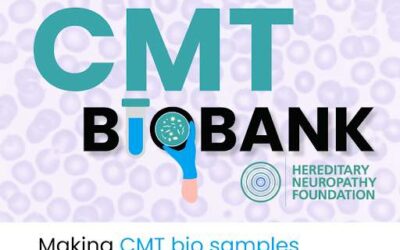MTRFR/C12orf65
A rare axonal hereditary motor and sensory neuropathy which presents with a series of diseases that cause blindness and cognitive impairment. MTRFR/ C12orf65 may result in CMT6, Leigh Syndrome, Spastic Paraplegia-55, Behr Syndrome and COXPD.
Current Research
University of Cambridge, Rita Horvath, MD, PhD, Director of Clinical Neurosciences has enrolled 15 patients, including Jaxson, in the MTRFR/C12orf65 natural history study. Dr. Horvath is an expert in mitochondrial diseases and has developed an impressive model for collecting, curating, and analyzing patient data for publication. With the completion of the enrollment phase of the study, a greater understanding of the symptoms, complications and progressions of these patients will allow a more targeted treatment approach.
In addition, Dr. Horvath’s lab has developed stem cells from patients that they have caused to grow into neurons. These neurons show signs of mitochondrial dysfunction that could point the way toward screening drugs for potential treatments.
University of Helsinki Institute of Biotechnology, Brendan Battersby, PhD continues to gain more insight on MTRFR/C12orf65 in specific models he developed and to test potential biological (drugs) as therapeutic approaches to treat disease. His lab has shown that proteins essential for mitochondrial function are reduced in cells lacking MTRFR.
Jackson Laboratories, Robert Burgess, PhD has developed mouse models that show loss of MTRFR is detrimental to health, and replacement of the gene with a healthy copy can prevent these negative consequences. While the mice that his lab has produced are not yet suitable for testing gene therapies or drugs, the work has shown that a gene therapy approach may be beneficial to patients.
Jaxson’s Clayshoot for Mito CMTs
Jaxson’s Clayshoot for Mito CMTs Among the various forms of CMT, mitochondrial CMT (Mito-CMT) represents a particularly challenging subset, where genetic mutations impact the mitochondria—often referred to as the powerhouse of the cell. For those living with Mito-CMT,...
2025 CMT Roadshow Coming to a City Near You?
Do you want to make a difference in CMT research? HNF is looking for patients with a confirmed CMT diagnosis to participate in the CMT Biobank
HNF sheds Light & Research Funding on Mitochondrial Diseases Linked to CMT
Mitochondria are the powerhouses of our cells. Think of them as our body’s batteries. Mitochondrial disease causes these batteries to run low.
Cambridge-led natural history study identifies MTRFR/C12orf65 deficiency to improve diagnosis and therapy development
This research will potentially show a method that may be quicker and better at identifying baseline disease phenotypes to support research and clinical trials. Cambridge-led retrospective natural history study funded by the Hereditary Neuropathy Foundation identifies...
The Houliares Family Takes on CMT6
We have two choices in this world. We can sit back and do nothing, allowing this disease to happen, or we can go out and fight to make a difference.
Jaxson’s Shotguns & Guitars
Thank you to everyone who attended this fun event with music, shoes, and plenty of shotguns, for Jaxson’s Cure.
Battersby Lab Donor Story: Fighter Moms Donate to Vital Research into Mitochondrial Diseases
Battersby Lab Donor Story Fighter Moms Donate to Vital Research into Mitochondrial Diseases
Meet Bosco
Meet Bosco, Zach Houliares service dog. Learn more about how service dogs can help those living with CMT!
Jaxson’s Clay Shoot 2021
Jaxson’s Clay Shoot 2021 Image gallery
Jaxson’s Spooky Shoot 2020
Thank you to everyone who attended this family-friendly event with costumes. Check out the photo gallery!












